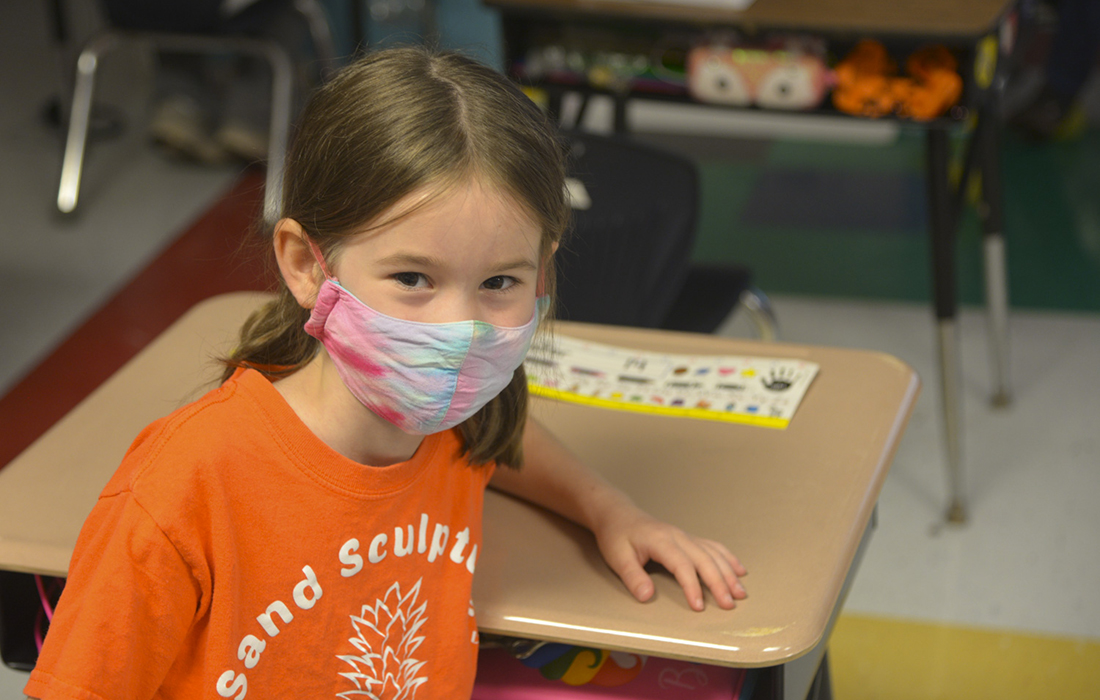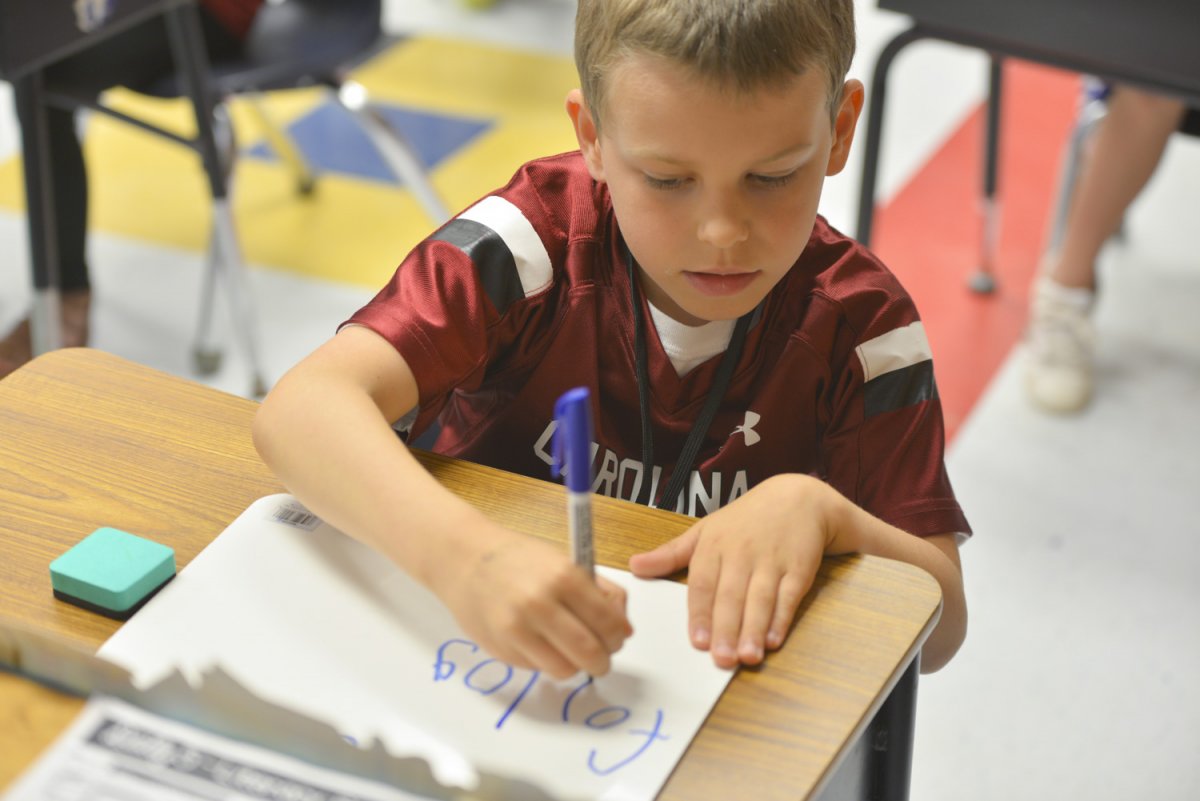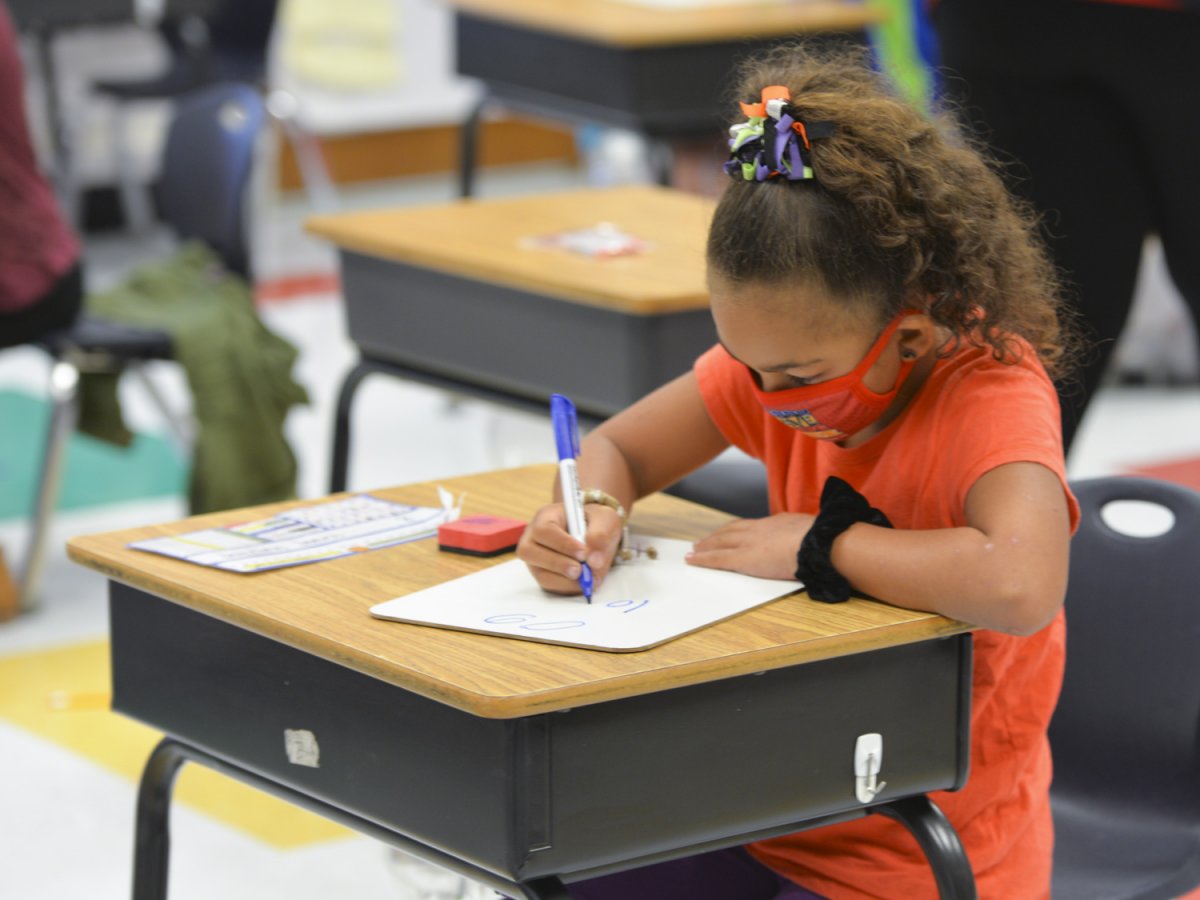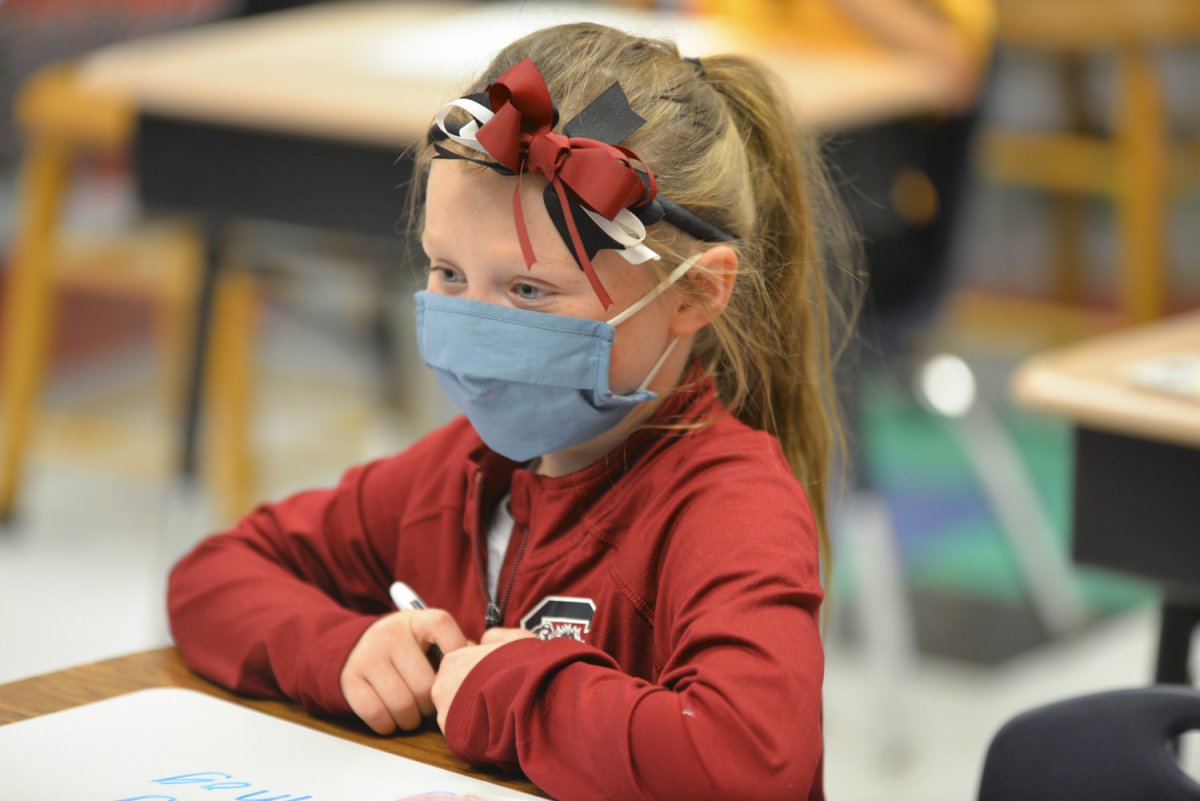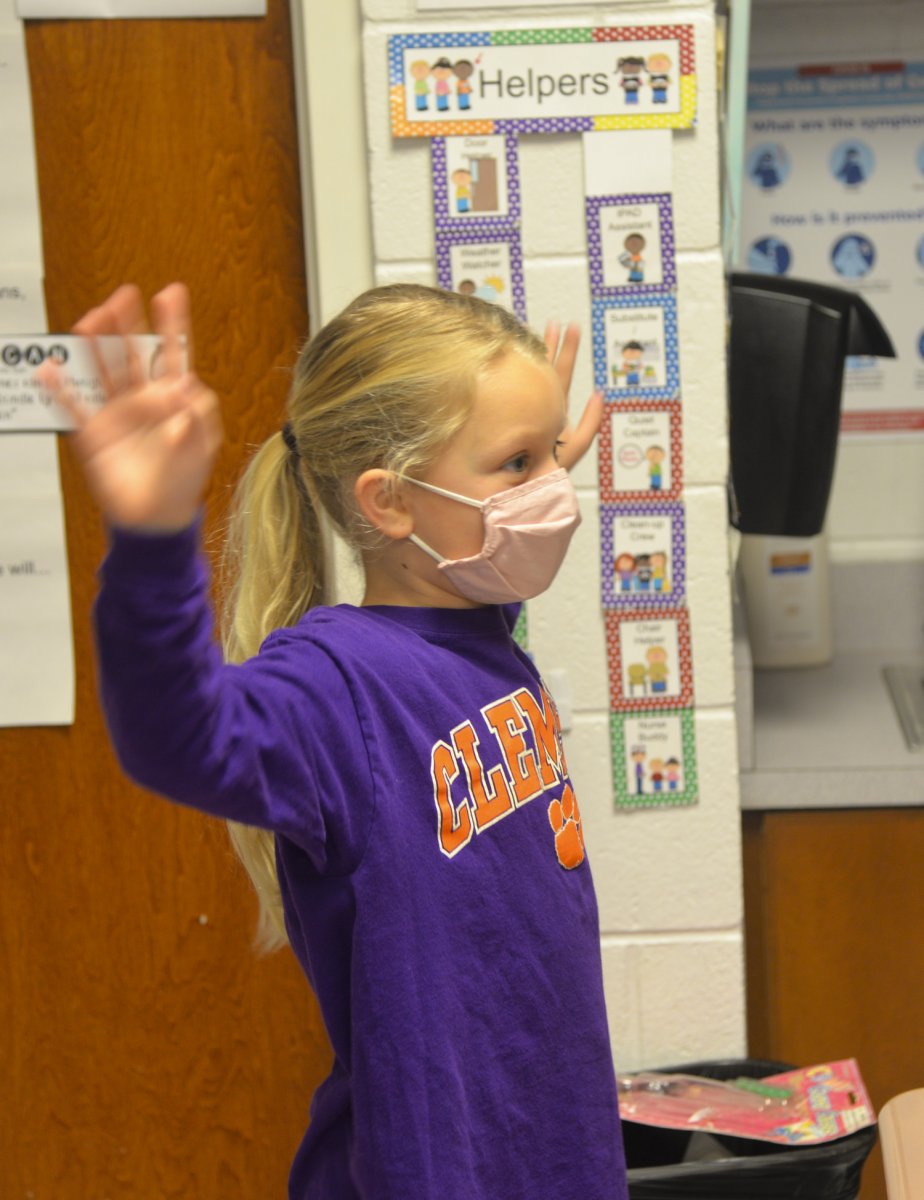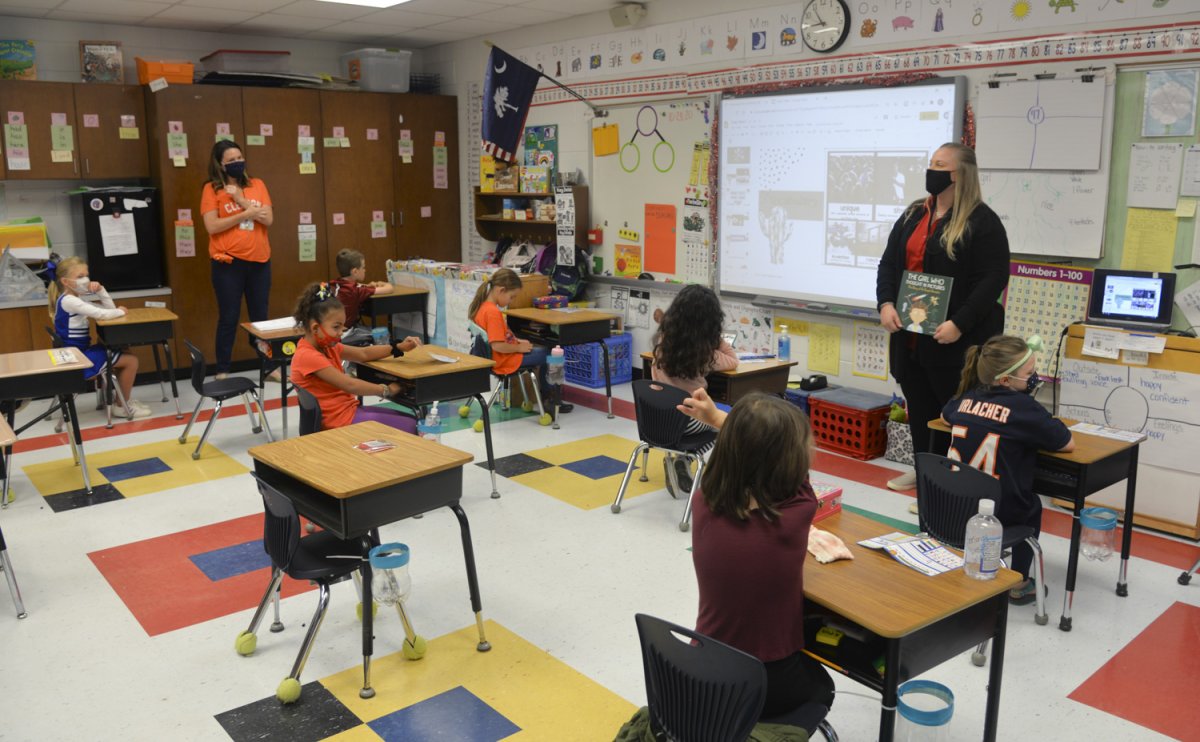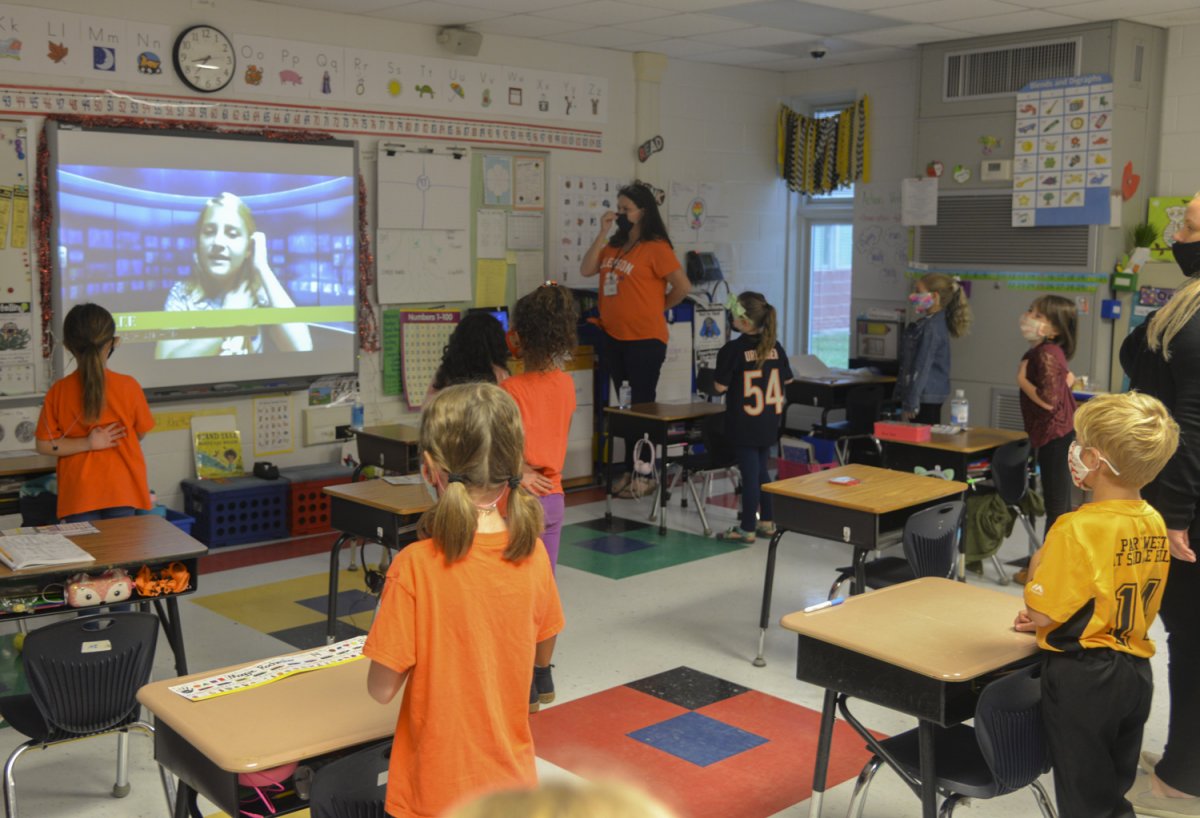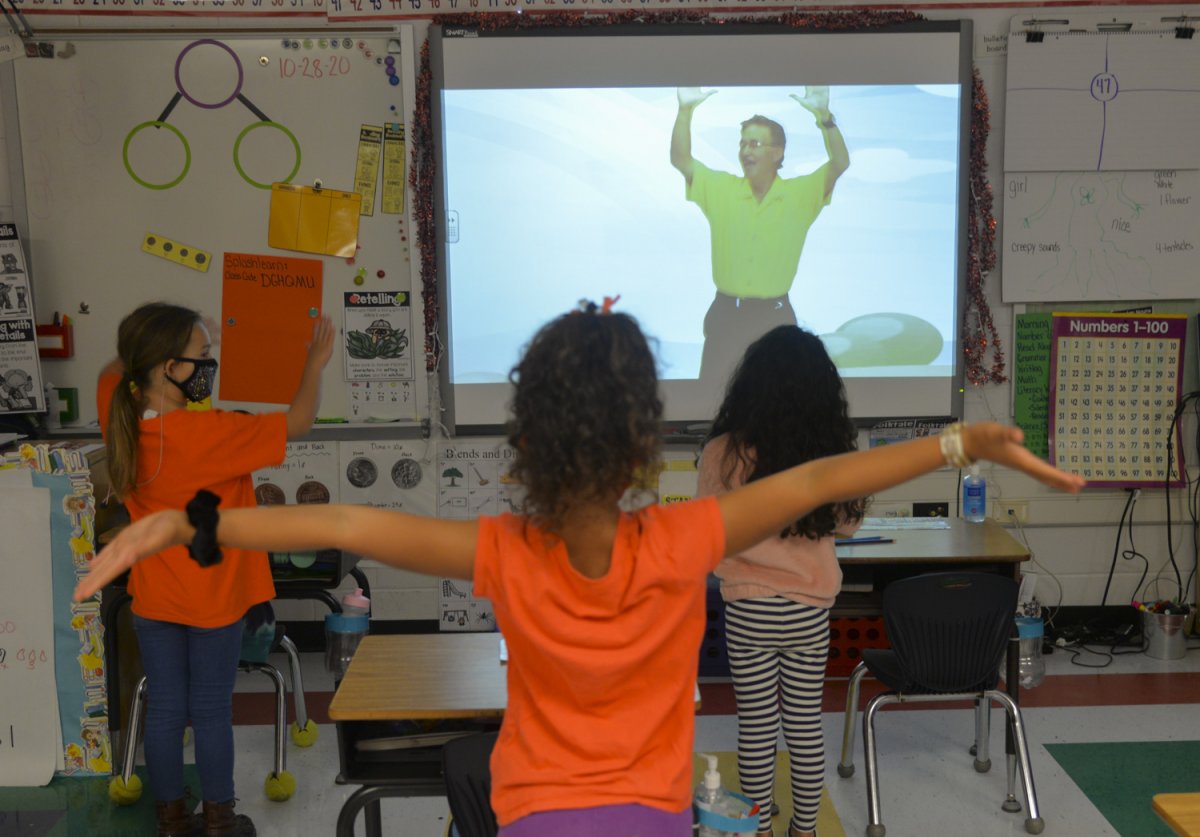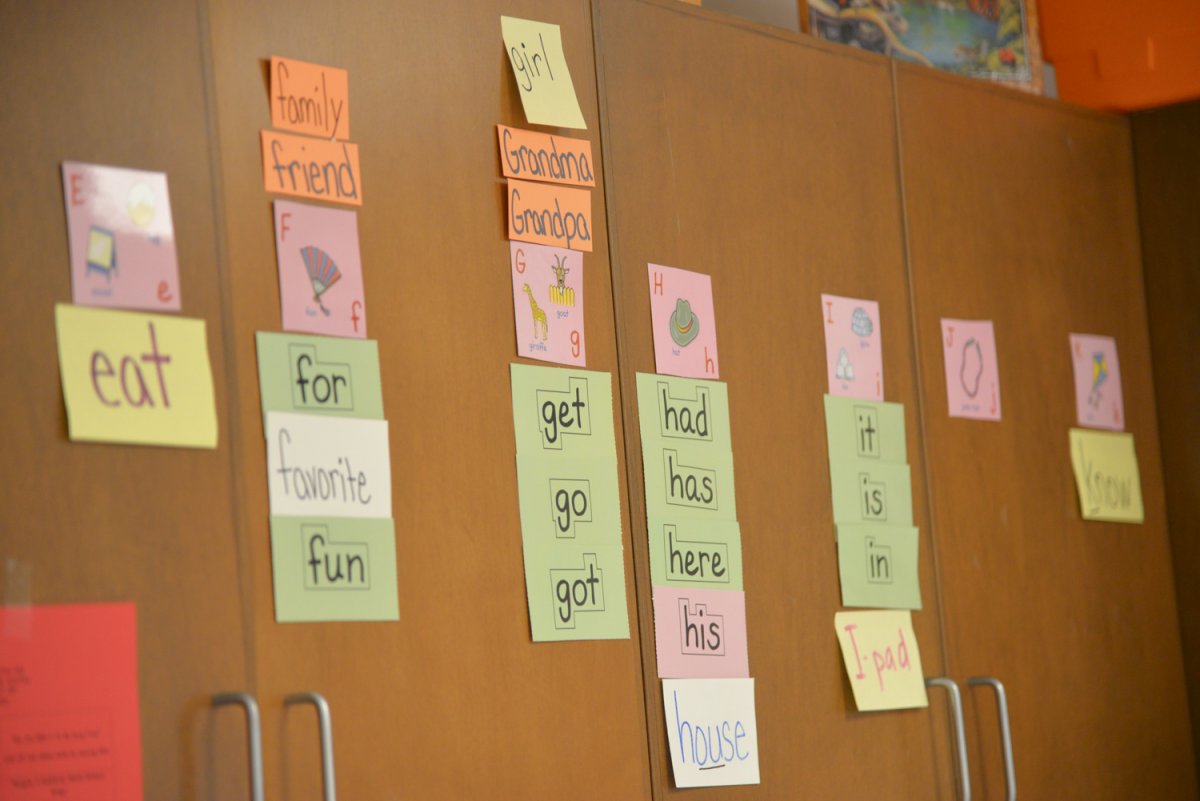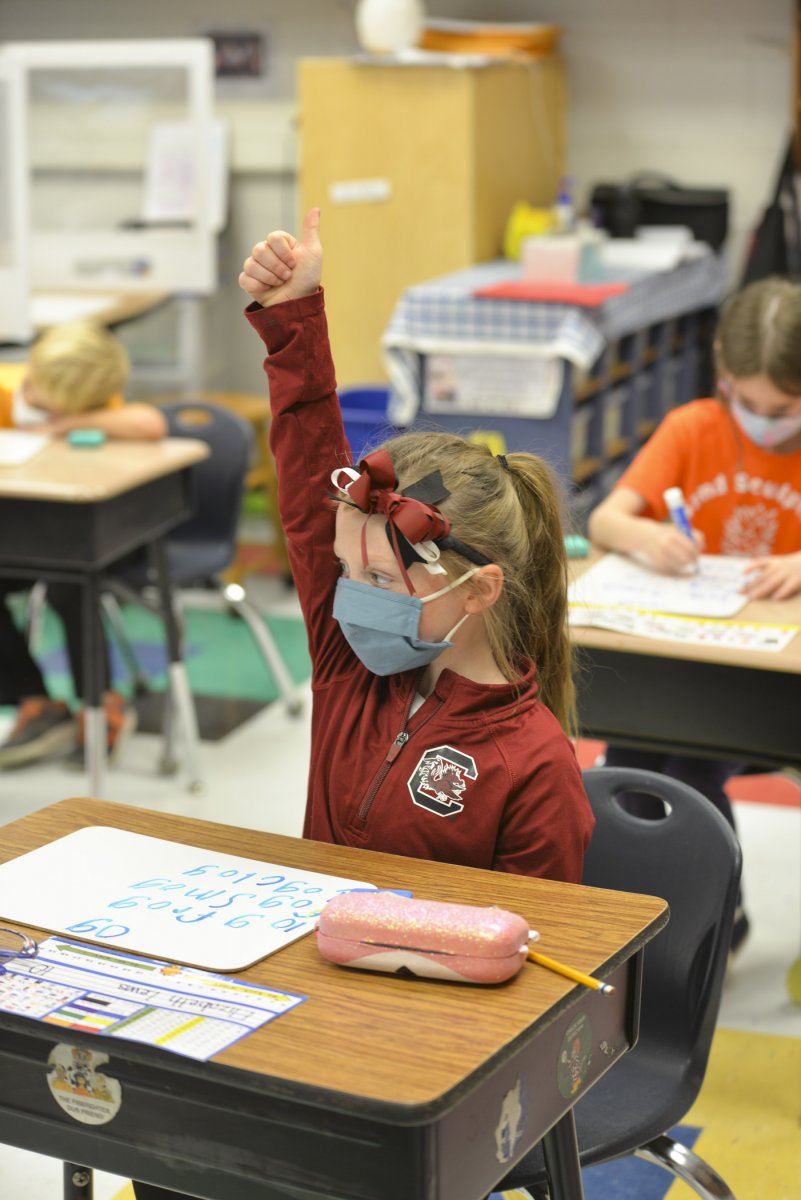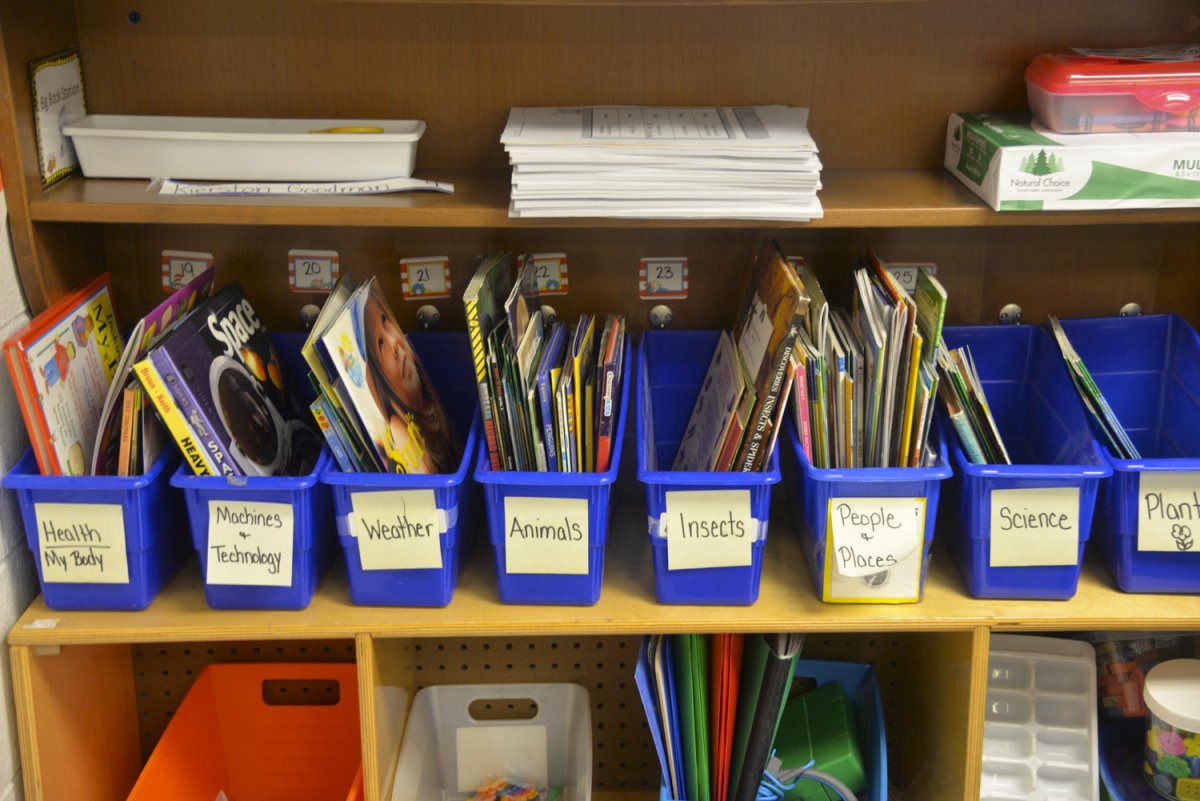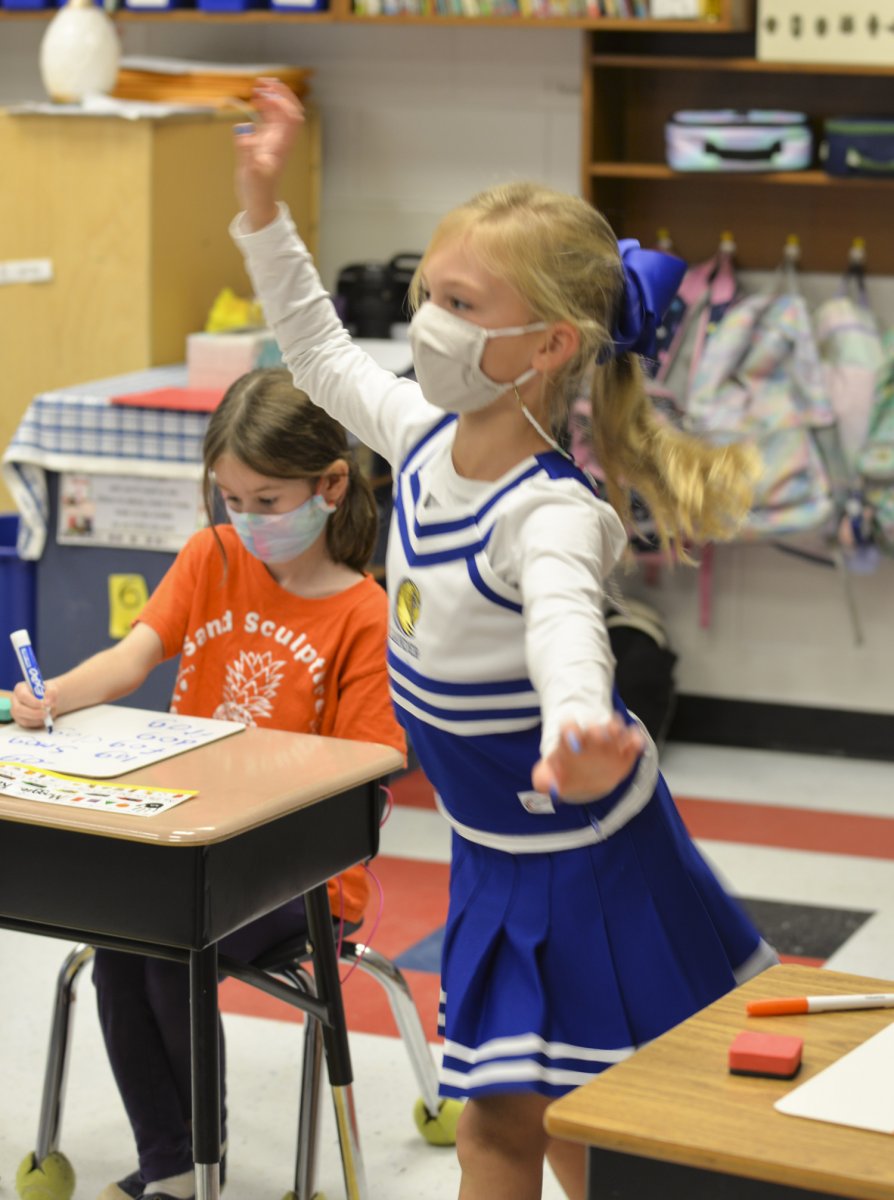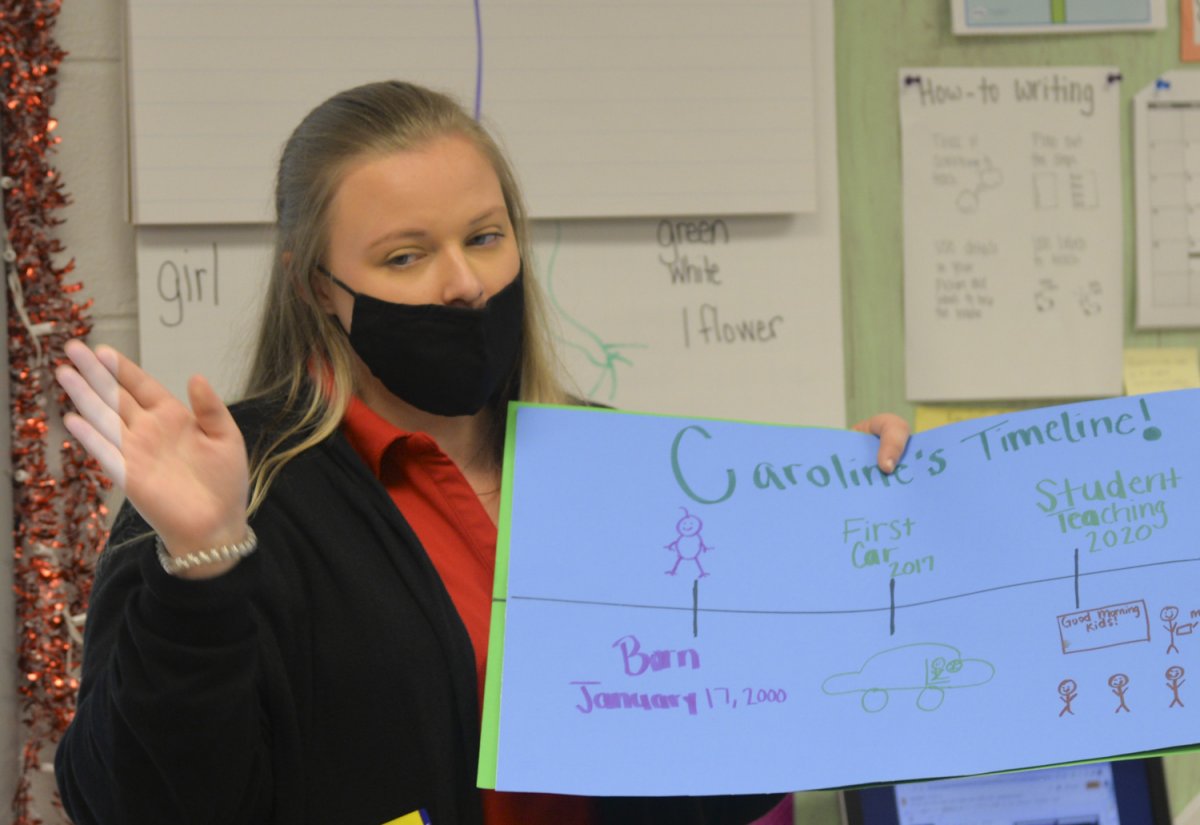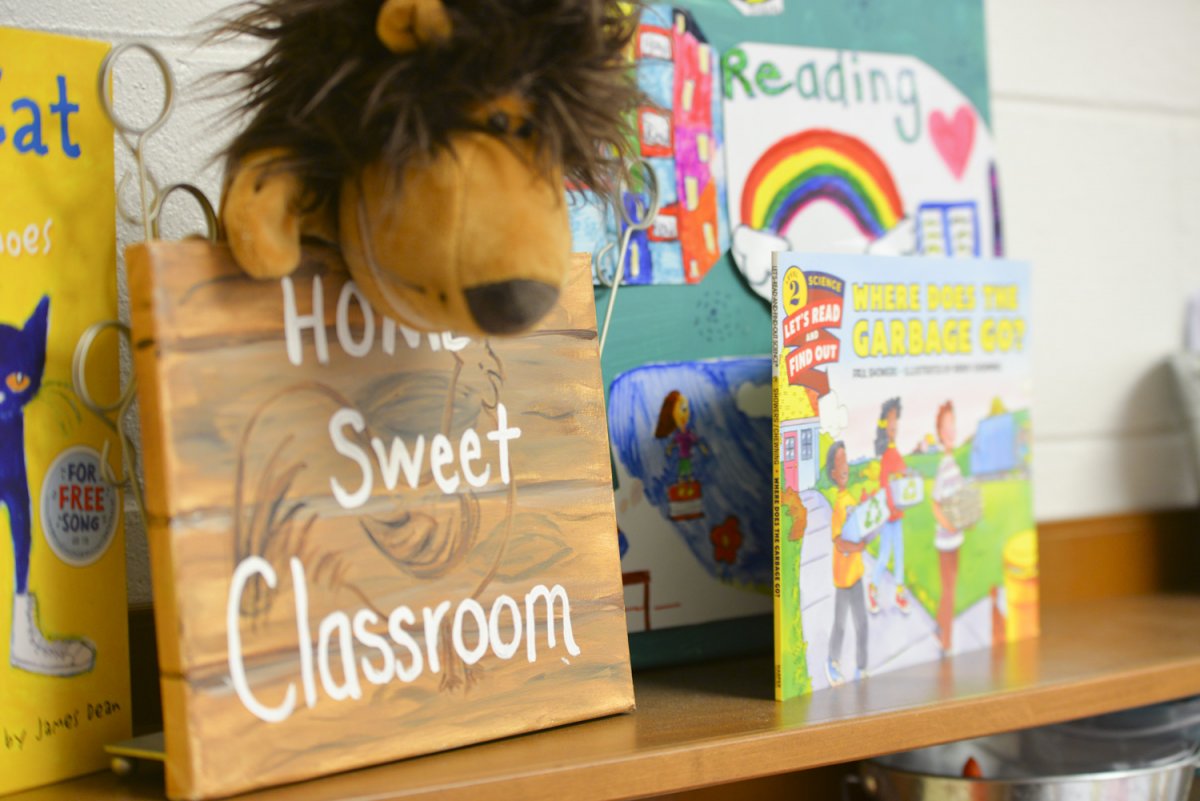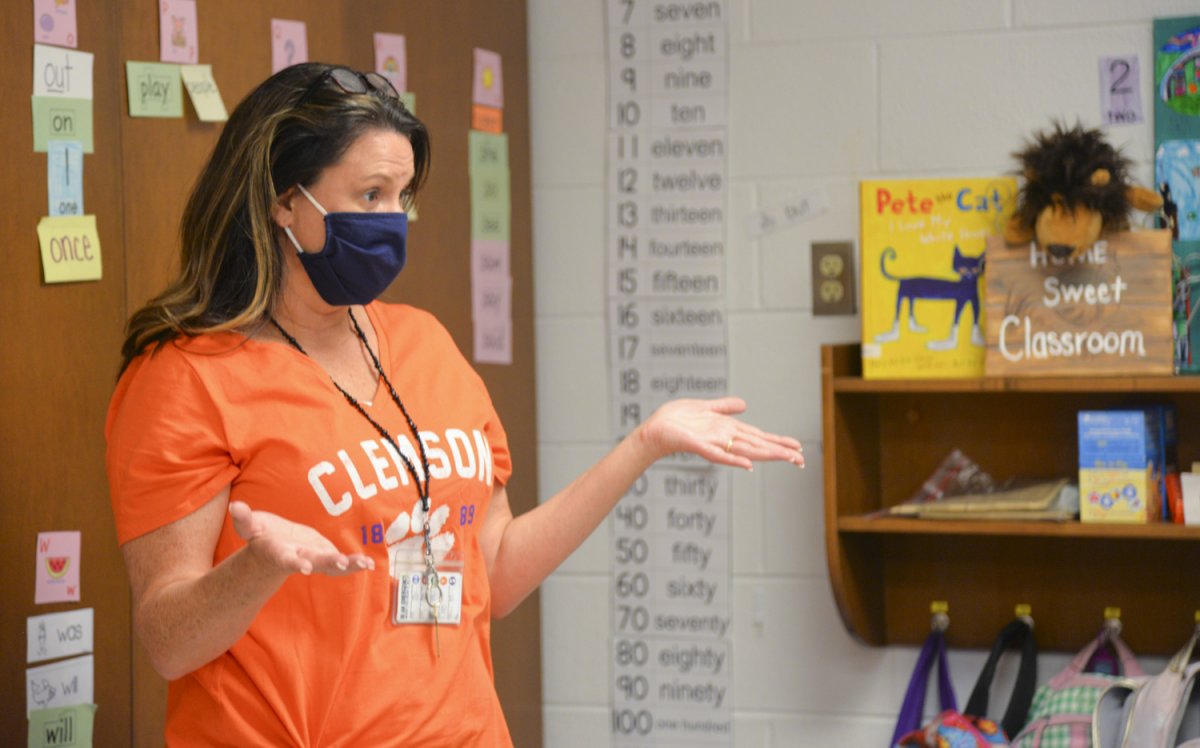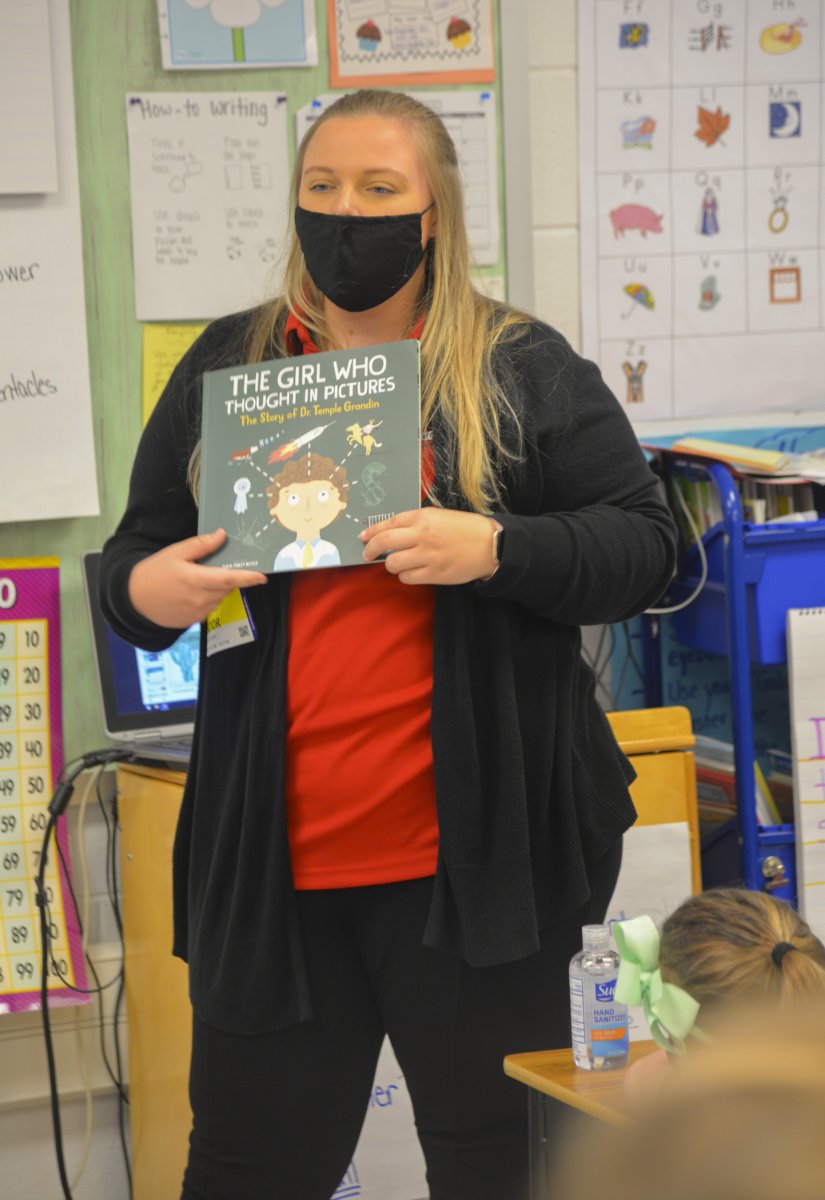PTC Shadows Early Education Major Through Field Placement Experience
Last fall, we shadowed Early Care and Education major Caroline Falls as she navigated her student teaching field experience at Hodges Elementary School. Caroline, Program Director Claudia Edwards, and Supervising Teacher Kimber Burrell gave us unrestricted access throughout the term, which ended in December.
Below is the final installment of the series, along with links to the previous installments.
Teaching Experience Concludes with Enlightened Case Study
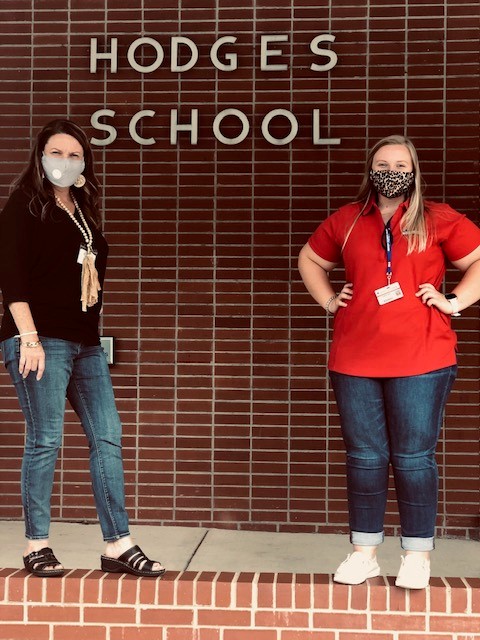 When Caroline Falls began her field experience this past fall student-teaching in Kimber Burrell’s first-grade classroom at Hodges Elementary School, she knew she would have to write a case study (with parental permission) on one of her students. On her first day in the classroom, she already knew which child she wanted to focus on.
When Caroline Falls began her field experience this past fall student-teaching in Kimber Burrell’s first-grade classroom at Hodges Elementary School, she knew she would have to write a case study (with parental permission) on one of her students. On her first day in the classroom, she already knew which child she wanted to focus on.
“This particular student exhibited a lot of attention-seeking behavior and took longer to complete tasks. She seemed to lack confidence with English vocabulary and language-related exercises,” she said. “She stuck out to me. She was really just beginning to struggle. I soon learned that the child, an English Language Learner, was from a large family that primarily spoke a different language at home, so her English was not consistently reinforced.”
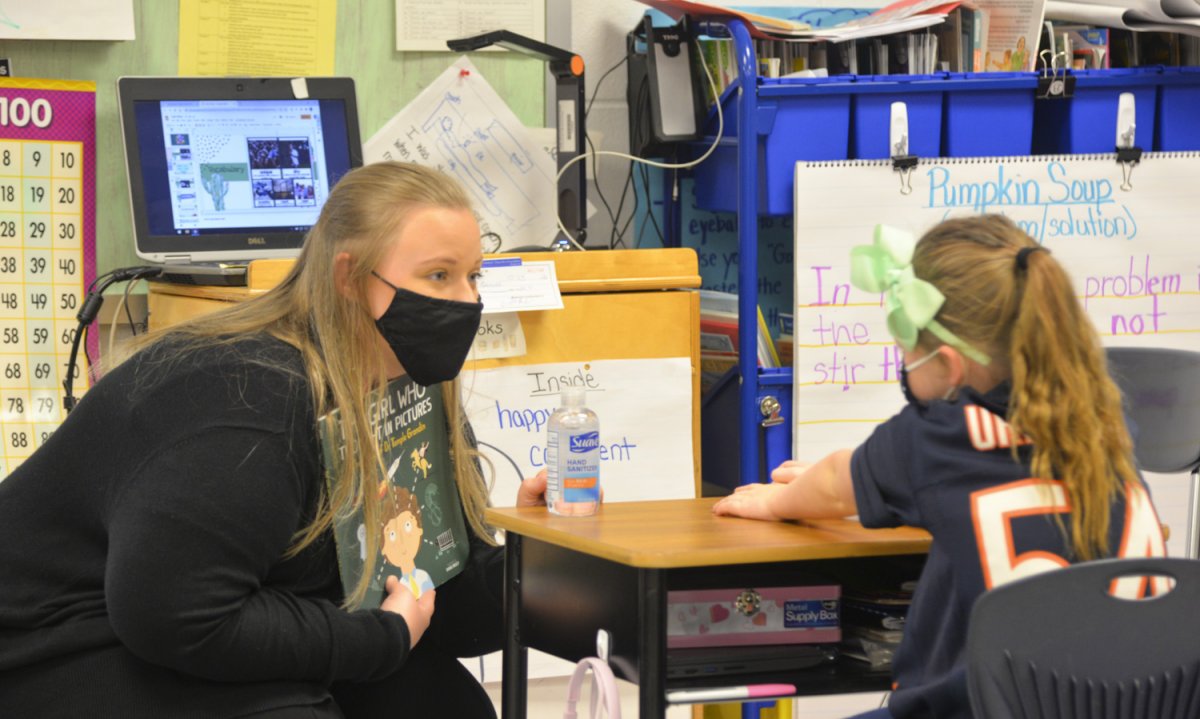 For the purposes of the case study, Falls chose to call the multilingual learner “Sally” to protect her privacy. Developmentally, children in first grade typically are improving their hand-eye coordination, including how to hold and use utensils.
For the purposes of the case study, Falls chose to call the multilingual learner “Sally” to protect her privacy. Developmentally, children in first grade typically are improving their hand-eye coordination, including how to hold and use utensils.
“Ms. Burrell had suggested I walk around the room and see how everyone was holding their pencil,” Falls recalled. “The first day, I noticed ‘Sally’ didn’t hold her pencil correctly.”
Falls worked with Sally to correct this minor deficit and support her overall success at many classroom tasks. Burrell also instructed Falls to watch students to identify milestones in motor skill development as well as social and emotional development.
Falls noticed that variations in class schedule and structure had a powerful impact on Sally’s progress. Under the staggered AB schedule, Sally lagged and lost enthusiasm. When students were able to return to a five-day week, she was much happier, and her classroom performance improved.
“She is now excited to be in school again. She went from 60 to 100 in reading comprehension in just a couple of weeks after the change,” Falls noted.
 Periodic assessments help educators adjust their educational approach for each student. Falls noted that Sally occasionally seemed afraid to ask for help. Subsequently, if she didn’t understand something, she would just stop working altogether.
Periodic assessments help educators adjust their educational approach for each student. Falls noted that Sally occasionally seemed afraid to ask for help. Subsequently, if she didn’t understand something, she would just stop working altogether.
“We try out different techniques in order to see which technique will work best for each student,” Falls wrote in her case study. Sally was introduced to a website that has thousands of books available for children. “The greatest benefit from this website is that each of these books can ‘read to you,’ so if a child gets to a page where they are unsure of a word, it just reads them the word instead of them getting frustrated and not trying. This has been a great source of technology for Sally, as well as every other child. It has truly helped her improve her performance because she wants to read and be read to.”
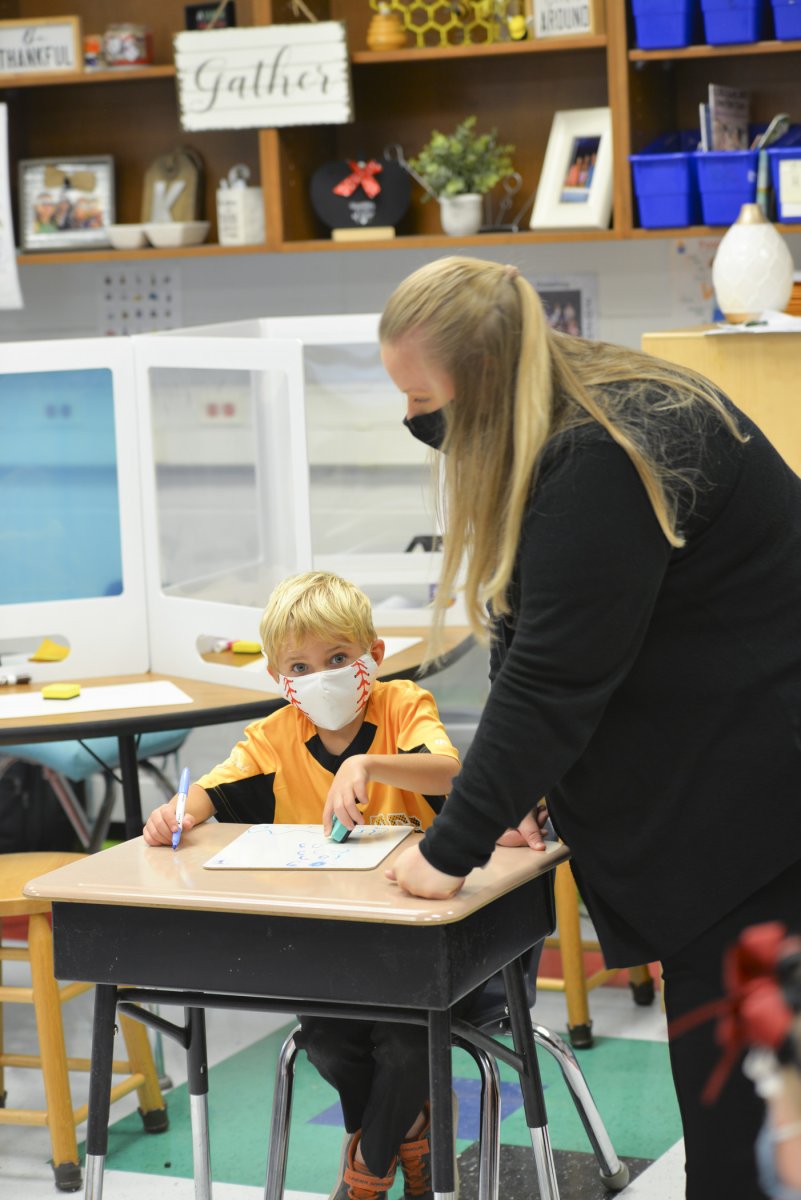 Falls understood that, based on research, confidence is a strong predictor of success, so she worked hard to reinforce and boost Sally’s confidence in her reading and writing skills. She explained to the girl that her language skills already are good and can always get better because even professional writers are also always improving their skills. She also reminded Sally of the affirmations that the class practices daily. “I reminded her that she can do hard things, she is smart and she is able. … Though she is such a bright student, she has to be reminded of that, just as I have to be ― and still do.”
Falls understood that, based on research, confidence is a strong predictor of success, so she worked hard to reinforce and boost Sally’s confidence in her reading and writing skills. She explained to the girl that her language skills already are good and can always get better because even professional writers are also always improving their skills. She also reminded Sally of the affirmations that the class practices daily. “I reminded her that she can do hard things, she is smart and she is able. … Though she is such a bright student, she has to be reminded of that, just as I have to be ― and still do.”
During Falls’ time with Sally, the young student teacher observed a marked improvement in Sally’s language and cognitive development.
“She is able to speak in complete sentences with at least seven words included. She is able to follow directions, slowly begin to sound out words and make connections from stories to herself,” Falls wrote. “… Overall, she has truly improved in each of these development stages by making connections, gaining independence and having encouragement.”
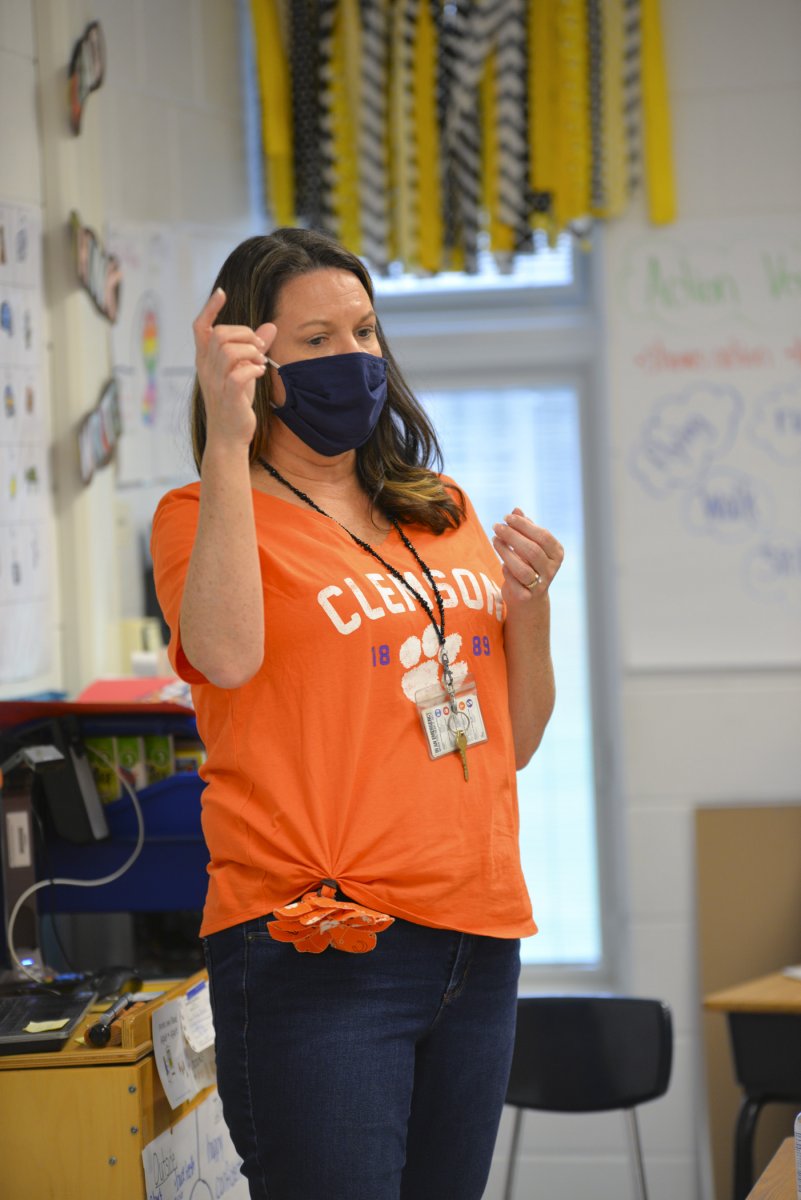 Supervising teacher Burrell was confident in Falls’ ability very early on during her field practice. “There are some students you just know are going to be successful, some who are serious,” she said of Falls. “You want to foster their love for teaching, especially now as we have a teacher shortage. … COVID has been a game-changer. This year, we have had a lot of people retire. We really need good, strong students who are willing to step up into this field and not be afraid of hard work.”
Supervising teacher Burrell was confident in Falls’ ability very early on during her field practice. “There are some students you just know are going to be successful, some who are serious,” she said of Falls. “You want to foster their love for teaching, especially now as we have a teacher shortage. … COVID has been a game-changer. This year, we have had a lot of people retire. We really need good, strong students who are willing to step up into this field and not be afraid of hard work.”
Falls may have found her niche in early education, but she is keeping an open mind because there is still much to learn.
“I enjoy the independence of first grade. It’s a big step,” she said. “I am excited for next semester to see what’s in store.”
###
Links to Installments in This Series
PTC Student Teachers Experience First Day in the Classroom - September 15, 2020
WWBD? Student Teacher Asks 'What Would Burrell Do'? - October 27, 2020
Teaching the 3 Rs - Plus Kindness and Character -- November 10, 2020
'Today Was a Really Good Day' - November 18, 2020
Student Teacher Embraces the Spirit of Teaching - December 17, 2020
PTC Student Teacher 'Spreads a Little Sunshine' - January 14, 2021
GALLERY - FACES IN THE CLASSROOM
